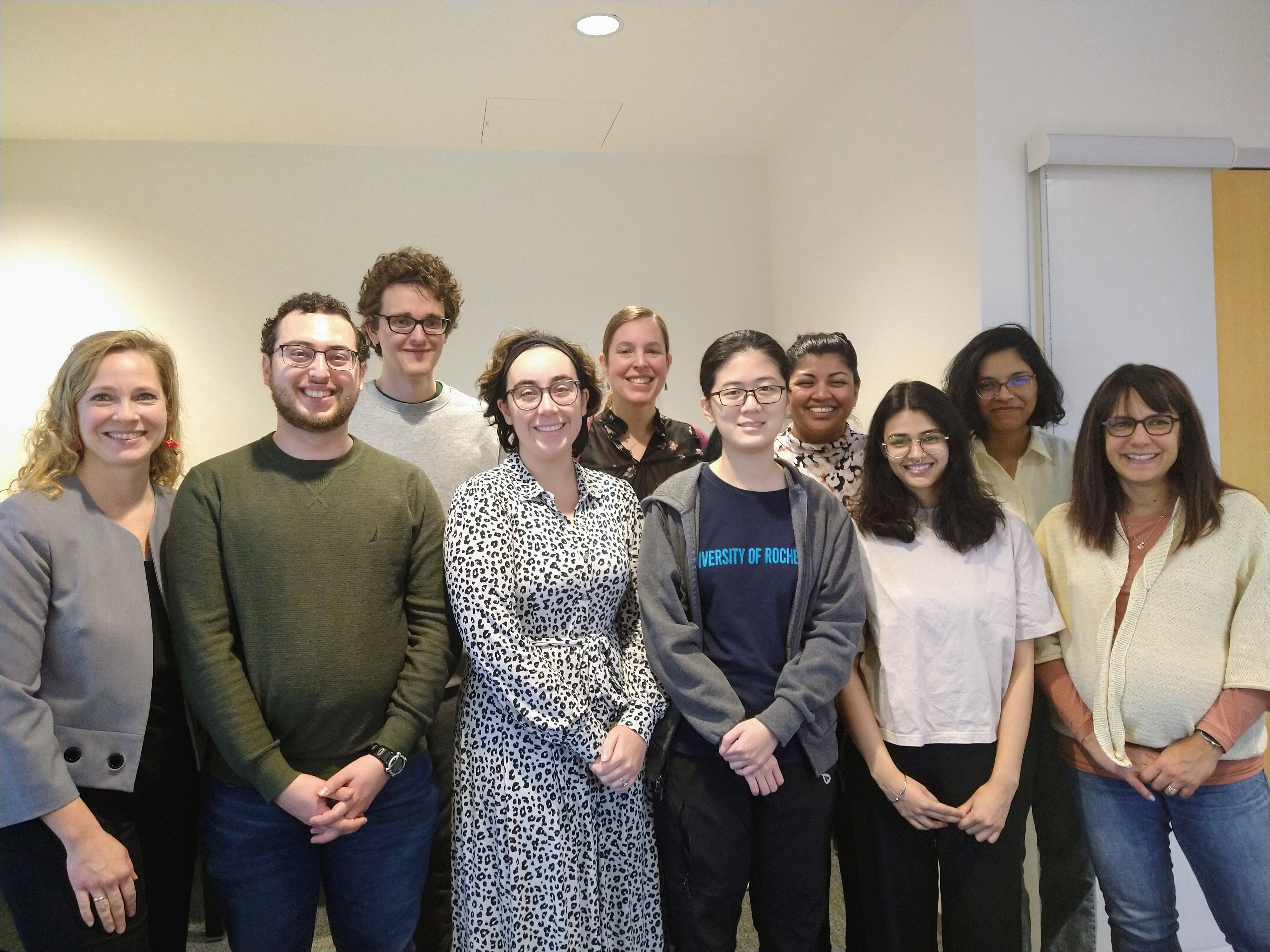
Grammar and Variation Lab
The Grammar and Variation Lab focuses on the overlap between the subfields of Language Documentation and Description (LDD) and Language Variation and Change (LVC), including both methodology (the collection of empirical data, the many different methodologies encompassed under the name “fieldwork,” working with people and speech communities), the linguistic data that we and members of our labs are collecting, and methods of analysis. Undergraduate and graduate students who are interested in the intersection of the fields of LDD and LVC are welcome to attend.
More InformationSociolinguistic Variation in Grammars
Directed by Maya R. Abtahian and Nadine Grimm
We are currently working on a project that investigates how sociolinguistic variation is represented in reference grammars, by tracking where linguistic variation is documented in the language and what explanatory social factors grammar-writers use to explain non-grammatically conditioned variation:
N. Grimm, M.R. Abtahian, R. Everson, C. Aceves, J. Davis, S. Kirshner. Towards a typology of sociolinguistic variation. Association for Linguistic Typology, University of Texas at Austin. Dec 14-16, 2022
African Languages Research Group
Directed by Nadine Grimm
This research group brings together faculty and students interested in African languages, with a focus on the phonology-syntax interface. We currently work on two projects: (1) Grammatical tone in the encoding of tense, aspect, mood, and polarity categories in Benue-Congo languages and (2) Syntactic tone and argument marking in Bantu.
Discourse Pragmatic Variation Research Group
Directed by Maya R. Abtahian and JC Wamsley
This research group examines variation in discourse pragmatics, how speakers of different languages express information about the current discourse. Examples of discourse pragmatic functions include information packaging, topicalization, focus, speaker attitudes, and other expressive content. Discourse pragmatic content is encoded through means ranging from prosodic focus, dedicated syntactic structures, to lexical items such as discourse particles. The current focus of this research group is on the distribution and function of discourse particles in four languages spoken in the South Asia and Southeast Asia region: Hindi, Tamil, Sinhala, and Hakha Lai.
Garifuna Phonetics and Phonology
Directed by Maya R. Abtahian
This project investigates the sound structures of Garifuna, an Arawak language spoken along the coast of Central American and in diaspora communities in the United States. Students help document and analyze features of the language.
Student involvement has included:
- Conducting and transcribing interviews
- Measuring and analyzing vowels and consonants of the language
- Analyzing patterns of phonetic variation and language change
Implosives in Bantu A languages
A collaborative project by Nadine Grimm, Joyce McDonough, and Jeremy Coburn
In this project, we study the phonetic parameters of stop sounds (plosives/implosives) in a variety of Bantu languages spoken in Cameroon. Descriptions of these languages differ significantly with respect to assigning stops sounds phonemic or phonetic status. This project constitutes a unique phonetic mini typology of these sounds, comparing VOTs, amplitude types, F0 on the following vowel, and plosive duration in Gyeli, Basaa, Bapuku, Bulu, Mabi, Ngumba, and Makaa.
